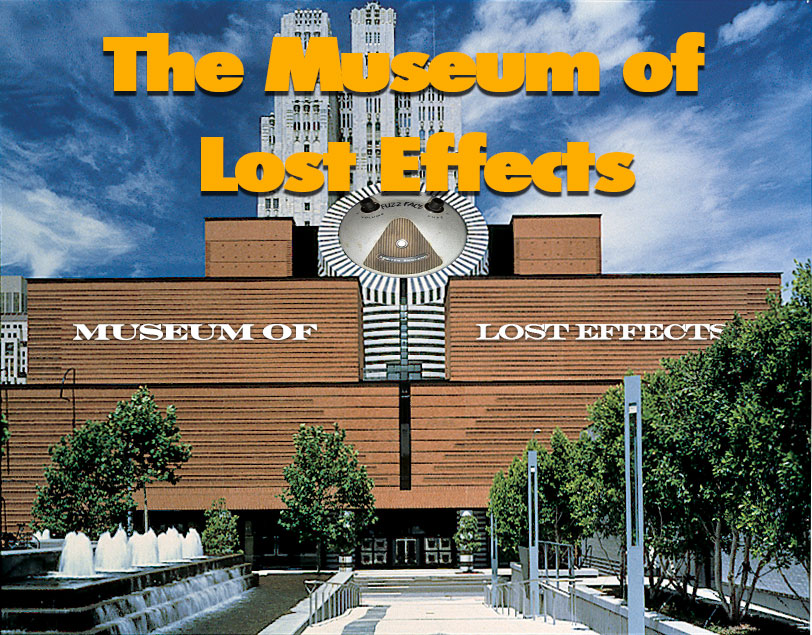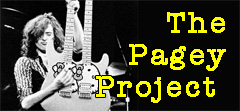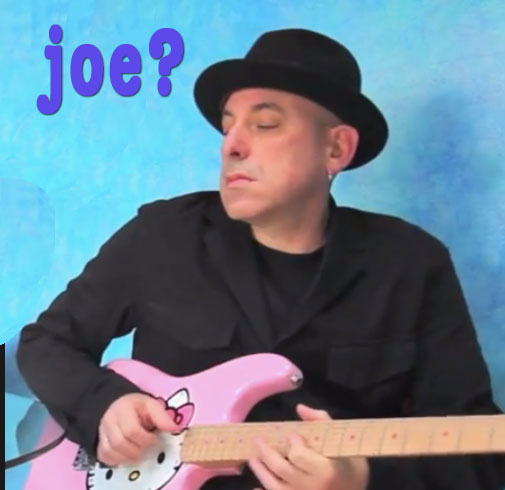I just learned that longtime Guitar Player magazine editor Tom Wheeler has died. No details have been disclosed yet. [UPDATE: Apparently Tom succumbed to a heart attack while leaving a family gathering.]
Tom not only gave me my first job in guitar journalism — he gave me my first proper job ever. When he hired me as an assistant editor in 1988, I filled out my first W-2 form. Before that I was a deadbeat musician, music teacher, and student.
 Many will talk about Tom’ titanic influence in the not-so-titanic world of guitar. He shepherded Guitar Player magazine through its most successful years. His The Guitar Book was the era’s standard reference for players and teachers. (My copy was worn out by the time I met Tom.) He joined the staff in 1977, and was head honcho from 1981 to 1991, when he left to assume a journalism professorship at the University of Oregon.
Many will talk about Tom’ titanic influence in the not-so-titanic world of guitar. He shepherded Guitar Player magazine through its most successful years. His The Guitar Book was the era’s standard reference for players and teachers. (My copy was worn out by the time I met Tom.) He joined the staff in 1977, and was head honcho from 1981 to 1991, when he left to assume a journalism professorship at the University of Oregon.
Tom was the finest mentor any young writer/editor could have wished for. (Well, so was then-senior editor Jas Obrecht, who is very much alive, well, and busy writing important music history books. So I was blessed with the two best mentors imaginable.)
I first contacted Tom the year before he hired me, pitching a monthly column on world music called Global Guitar. Tom wrote me a very nice rejection letter. I tried again the following year, and he declined a second time — but invited me down to Cupertino to interview for a new assistant editor position. I took the gig and commenced the long daily commute from San Francisco to Cupertino.
Tom took me under his wing in a big way. He gave me the opportunity to write a cover story my very first month (with the wise and wonderful Vernon Reid). He finally launched Global Guitar. And he was highly receptive to my story pitches and other editorial ideas.
Tom showed me the editing and publishing ropes with inexhaustible patience. He instilled a sense of ethics that guides me to this day: Be honest. Write clearly. And never forget that you’re there to serve the readers, not the publishers or the advertisers.
I happened to arrive at an exciting moment in guitar history, probably the greatest 6-string Renaissance since the ’60s. At that point the magazine focused on shred players, fusion maestros, and classic rockers. It didn’t take any special insight for me to realize we should also include upstarts like Sonic Youth, the Cure, and the Smiths, yet that indie/alt stuff hadn’t yet been embraced by the guitar mags. But Tom accepted such pitches and assigned me cover stories on those artists and many others. Today such coverage seems like a no-brainer, but it was quite controversial at the time. I received much reader hate mail, and those stories were sometimes blamed for the mag’s declining market share. Yet Tom backed me without fail. He also let me write about funk, the avant-garde scene, and players from Africa, Latin America, and Asia.
We held our staff meetings in Tom’s office — “Wheelie’s office,” we’d say — and it was always a bloody mess. There were inevitably overflowing mail bins of yet-to-be-heard vinyl and CDs and lofty towers of magazines and loose paper. That’s not to say Tom was disorganized — he never missed deadlines and rarely displayed stress during editorial crunches. There was always just a lot of crap in his office!
I was there for the last gasp of the mag’s original vision. Founder Jim Crockett and former editor Don Menn — two other lovely, supportive guys — soon departed, and GP was sold for the first of many times. After being the only magazine of its kind for decades (and effortlessly raking in big advertising bucks) there was increasing competition from Guitar World, Guitar for the Practicing Musician, and various spinoffs. Tom chafed under the corporate scrutiny, especially when the new publisher upbraided him for being late with some bullshit corporate report while a member of Tom’s family was undergoing a serious health scare. When a chance to teach journalism arose, Tom took it, and he recommended me to assume his role. (I didn’t really, literally or figuratively. We crafted a sort of halfway editor gig with Keyboard’s Dom Milano as publisher, which I held for a few years till I left to focus on playing.) Tom’s parting gift was a copyediting manual I have to this day.
It’s no secret that Tom really loved guitar. In fact, his most lasting contributions to the field may be the hefty tomes he authored after quitting GP. He’d always pause his work to check out whatever gear was passing through, and he played with the enthusiasm of a kid newly hooked on the instrument. Me, I have a neurotic love/hate relationship with the guitar and its players. Tom just reveled in all of it, in the purest possible way.
What I remember most about Tom, though, was his kindness. He was just plain nice! I remember one time when our newly hired NYC editor, Matt Resnicoff, was visiting. Matt, who had previously worked for Guitar World, was flabbergasted to witness Tom take a call from a random reader who wanted to ask about some arcane gear detail. “Whenever someone like that calls Guitar World,” Matt said. ”Our editor tells the receptionist, ‘Tell ’em to blow! We’re not a fucking information service.’”
I saw Tom a few times after he left. I’d run into him often at NAMM shows, and if I could drag him away from his admirers, we’d grab a sandwich. And I’d give him a ring whenever I played near Eugene. One time he came to an Oranj Symphonette gig with his local guitar buddy, Bill “Zoot Horn Rollo” Harkleroad of Capt. Beefheart fame. I was so nervous!
But whenever I think of Wheelie, I visualize one specific image: Tom, head down at his desk amid stacks of yet-to-be-processed paper, concentrating on an edit or page proof. (He was a great proofreader.) No matter how deeply focused he was, if you tapped on his door, he would pause, look you directly in the eye, and flash that all-American Tom Sawyer grin, his eyes sparkling exactly as in this photo. He’s not putting on that expression for the camera — he usually looked like that!
Later, when I briefly occupied the corner office, I would attempt to emulate him. I mean that literally: I’d think, “Pause, look up, eye contact, big smile.” But I never mastered the skill like Tom. He was a natural.
Farewell, my role model and mentor. You always were and will always be an inspiration, and I know that countless other players, craftspeople, readers, and writers feel the same. I am eternally grateful for your passion, wisdom, generosity, and kindness.








Lovely, Joe. What a man, indeed.
Great article Joe. Have Tom’s book and have followed Guitar Player Mag since the early 70’s.
I grew up with his name in my hands. Beautiful memories.
Deepest condolences.
I think the Tom Wheeler years were the peak for GP. Sorry to hear of his passing. I always heard good things about him.
Can’t believe Tom Wheeler passed on. He used to have his college class call me once a year when I was Editorial Director at TransWorld Media to talk about publishing. I’d tell them about the latest crisis and the reality of doing the job.
I really, really, really liked him and was very much influenced by his landmark work on all things guitars. What a great man!
Thank you so much for this, Joe. And as you pointed out so beautifully, besides his immense, pioneering professional accomplishments, Tom was — above all else — an especially kind human. He will be missed.
Hey Darrin. It was lovely seeing you at NAMM. Tom is the second important person in my life die suddenly in recent months. I’m tired of writing obits. You called it, though — Tom was kind above all else.
Beautifully written and felt, Joe. I was one of those lucky underlings in the GPI building when I went to work at Frets magazine in 1986, with Tom just down the hall. I got to know him even better after we both relocated to Oregon in the ’90s. He was a wealth of information, generous to a fault, and – as Joe says – just about the nicest guy in the world. My wife and I had brunch with Tom in Eugene just a few months ago. He seemed healthy, energetic, funny, and in a positive frame of mind. We are shocked that he is gone. I will miss him greatly.
Hi Mark! Nice to hear from you. I hope you’re doing well and playing as brilliantly as always. Tom was so hale, hearty, and upbeat, I was sure he’d outlive us all.
A beautiful person is off the planet. Too soon, Tom. Too soon. I’m holding my original edition of American Guitar in my lap as I write this. The copyright says 1982. I was a 26 year old guitar teacher and repair person in a music store in Philly and Tom’s book was manna from heaven, full of FACTS about guitars at a time when real info was very thin on the ground (save for George Gruhn and the Mandolin Bros.). I cherish his book as a timeless tribute to Tom’s clarity and dedication to the instrument we all love. Play on Tom.
Beautifully said, Rich. (For anyone who doesn’t know: While Rich is a modest guy who probably will hate me for saying this, he’s one of the world’s most important guitar designers. He created many influential instruments for Ibanez, Yamaha, Peavey, Vox, and more. Damn good player too.)
Great piece, Joe. TW knew talent and your impact on the magazine was immediate. The corporation changed everything but I always remember how you and Jas soldiered on and produced brilliant material against the odds. We were both honored and made better by having him as our boss and friend.
What nice things to say, Jon. For those unaware: Jon wrote many fine stories during Guitar Player‘s golden age and also took many of the magazine’s most unforgettable photos, including some classic covers.
What a cool tribute Joe. I learned so much from Tom. He was a great role model for anyone who wants to be a writer, an editor, a teacher, a student, or a decent human being. I really loved the fact that, even though he was an expert in so many things, he never stopped asking questions. That might be my biggest takeaway. RIP Tom Wheeler.
I know what you mean, Matt! Actually, that was the single quality I most appreciated about my late parents: They were lifelong students who never lost their curiosity. Tom most definitely had that quality, and I agree that it was one of his finest attributes.
Folks probably know this, but Matt has been a longtime Guitar Player freelancer and staffer, responsible for a vast number of great interviews and lessons. He’s also a hell of a guitarist.
Thank you, Tom. I carried your book around like it was the ONLY copy of the Bible for a good 6 months.
I subscribed to GP and still to this day it is all etched upon my brain. Till about 1984.
Thanks again,Tom. You changed my life.In a good way.